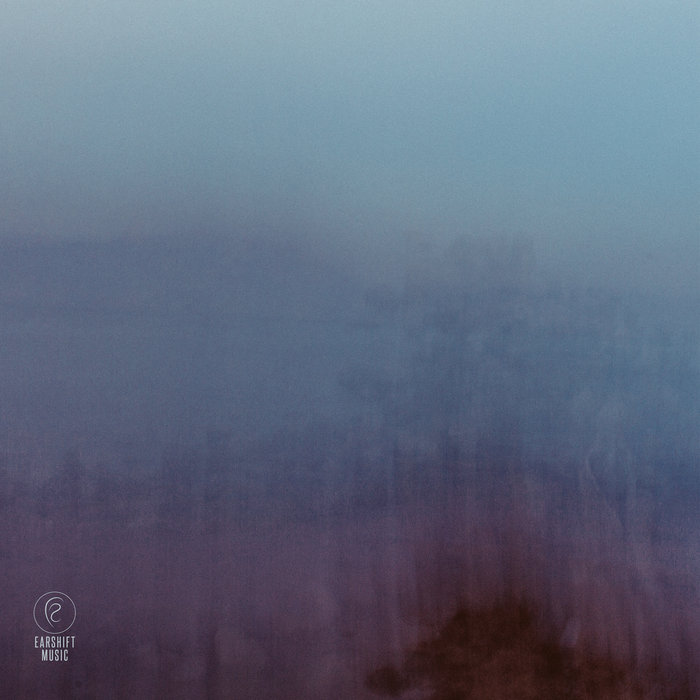The Breakdown
It’s sobering to think that it was way back in 2013 that Ross McHenry was landed with the ‘future of Australian Jazz’ strapline. If that was then then what is now? Well there’s probably a raft of other musicians who’ve picked up the ‘future of’ tag in the time that’s passed but as a bassist, composer and band-leader McHenry has steadily built an international reputation for his innovation and energy. There’s been the inevitable awards backed by a catalogue of acclaimed releases which began over a decade ago with the ambitiously cinematic ‘Distant Oceans’ and stretched through to 2020’s quartet thriller ‘Nothing Remains Unchanged’. Plus alongside these solo projects, the re-emergence of his mighty cosmic-fusion collective The Shaolin Afronauts has put the muso community in a spin.
So when word of new Ross McHenry music arrives it’s clearly something to leave some time for. His latest statement is ‘Waves’ (available now on Sydney’s Earshift Music), an emotionally charged album which looks set to enhance his reputation as a jazz communicator. Intriguingly the collection also sees his return to writing for and playing in a larger ensemble but it’s not just any session band that’s gathered around McHenry for ‘Waves’. The credits run like a roll call of some of New York’s go-to players : the peerless Eric Harland on drums, who’s worked with the Charles Lloyd Quintet, Dave Holland, Joshua Redman, McCoy Tyner and more; tenor sax expressionist Donny McCaslin, who besides serious jazz cred played on Bowie’s ‘Blackstar’; from Brooklyn’s nu-jazz cutting edge trumpeter Adam O’Farrill; guitarist and Bad Plus member Ben Monder; and finally fellow Australian now re-located in the Big Apple, pianist Matthew Sheens.
The group didn’t just morph together in the NY studios where ‘Waves’ was recorded. Sheens was part of the tight trio that powered McHenry’s 2017 ‘The Outsiders’ album and also featured on ‘Nothing Remains Unchanged’ along with drummer Harland. Obviously, as a bassist, a well-bonded rhythm section is a natural focal point for his compositions and the Sheens/Harland/McHenry interplay on this their third album together hits an acrobatic level of trust and timing. Both the title track and In Landscape which introduce the album, orbit around the multi-percussive energy which this threesome generate. Waves takes an elegantly funky, EST starting point and then gradually swells to something towering and expansive. It’s a thunderous piece of climactic post-rock jazz with a stunningly choreographed wind down where piano, bass and drums jab at each other.
In Landscape is similarly dramatic, the trio expanded with O’Farrill’s trumpet and McCaslin’s sax. Harland’s skittering snare beats whip the song along and the Mingus big band melody sets the scene. From here things get flighty and open ended, the horns snaking around each, McCaslin’s tenor solo twirling through some stunning somersaults, before the piece fractures with some sharp broken beats.
It’s an intense introduction to ‘Waves’, an album which McHenry reveals “is about experiences from the past and the way they meet experiences in the present.” He began working on the pieces in 2019 at the same time as wild fires were devastating the Australian landscape and at the core of the music is the turmoil of loss and the strength of resilience. For McHenry the period triggered more personal reflections on his childhood, the passing of his twin brother as a baby and his own family now that he too is a parent. What’s affecting about ‘Waves’ as an album is that McHenry and his band manage to weave such complex emotional layers through the music. Like all the most powerful jazz, the tunes here make an impression through more than technique or instrumental prowess. They connect with the listener.
Take the track July 1986 which sounds and feels especially poignant. Inspired when McHenry was looking through photographs of his family home, it’s a gently immersive piece, subtle, atmospheric and uncluttered. Ben Monder’s guitar brings shoegazing shivers and purring melody lines while the O’Farrill trumpet breathes and whispers sensitively. Closing track 1989 is similarly paced to give room for reflection and reminiscence. McHenry has revealed that the title references his younger brother’s birth-year together with recollections of family times both painful and joyous. There’s a sense of wonder in the piano-lead melody which Donny McCaslin brilliantly refracts into something more desperate with his urgent sax voicings. Finely balanced, with an undercurrent of tension, McHenry and his ensemble on this form are nudging up alongside Tord Gustavson for dynamic intricacy.
‘Waves’ other moments use a wider canvas and fill it with big music. North of the River ebbs and flows, rising brass phrases, liquid bass lines and rhythmic splashes picking up speed all the way home. Odysseus in Brooklyn captures the ache of being away from loved ones, part mournful with McHenry’s nimble and nuanced bass solo, part hopeful in the twin sax/trumpet crescendos. Perhaps Love and Obscurity is the most anthemic song of the set. As the minimal bass/piano monotone pumps, Harland’s drums cascade around the pulse while McCaslin and O’Farrill soar in unison. There’s a communal urge onwards instilled in the track, sweeping between uplift, determination, anger and resignation. It distils what ‘Waves’ as an album brings, music of hidden depths and shifting emotions that will take you to different shorelines each time.
Get your copy of ‘Waves‘ by Ross McHenry from your local record store or direct from Earshift Music HERE














No Comment